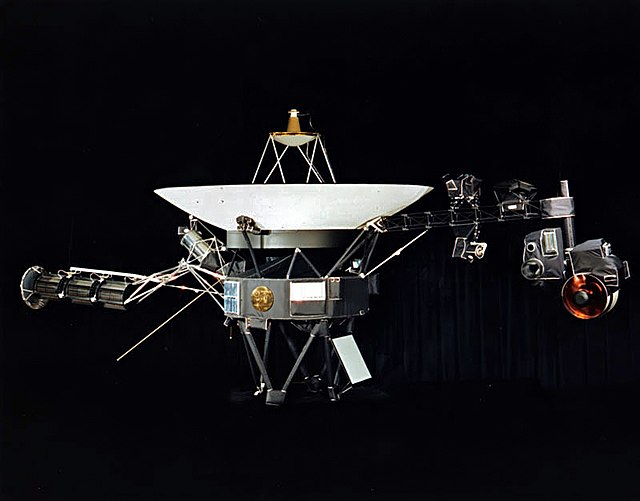- On July 21, NASA lost the Voyager 2 probe, which has been documenting outer space phenomena since 1977, due to personnel inputting the wrong command, sending its antenna two degrees away from Earth. The probe was 12.3B miles away from Earth when the connection was lost. Daily Caller (LR: 5 CP: 4)
- During a routine scan of the sky, however, mission controllers detected a “heartbeat,” which the agency says means it’s still broadcasting and in “good health.” Guardian (LR: 2 CP: 5)
- According to NASA’s Jet Propulsion Laboratory, which manages the Voyager missions, its space antenna in Canberra, Australia has also been bombarding Voyager 2’s area with the correct command, in the hope of making contact with it. BBC News (LR: 3 CP: 5)
- If attempts to send the correct command don’t work, NASA experts say they expect the probe to resume communications in October thanks to regularly scheduled commands that direct the spacecraft to reset its orientation. The next reset is scheduled for Oct. 15. Scientific American (LR: 3 CP: 3)
- Voyager 2 and its twin, Voyager 1, which is currently about 15B miles away, are slowly losing power from their nuclear radioisotope generators, but engineers have made several alterations to preserve their systems where possible. These alterations are expected to extend space data collection until at least 2026. Space.com
- Both Voyagers made history when they became the only spacecraft to reach interstellar space, a region outside the sun’s heliosphere. While the mission for both was to explore Jupiter and Saturn, NASA said Voyager 2 has since “explore[d] Uranus and Neptune,” and the next mission is to “explore the outermost edge of the Sun’s domain. And beyond.” Daily Wire (LR: 5 CP: 3)
Narrative A:
- Though NASA will have a chance to reconnect with Voyager 2 in October, the space agency is so far not hopeful. If the worst-case scenario does occur, it would be a tremendous loss and the end of an era. The almost billion-dollar project has brought remarkable planetary and interstellar knowledge to Earth, so hopefully, NASA can avoid losing out on future data collection.
New York Post (LR: 5 CP: 5)
Narrative B:
- After 46 years of travel and having purposely lost connection once before in 2020, the Voyagers have proven extremely resilient. For that reason, Scientists should be confident in their ability to regain connection. There’s no reason to doubt that this space probe’s incredible legacy will continue.
New York Times (LR: 2 CP: 5)
Nerd narrative:
- There’s a 60% chance that we will detect an exoplanet atmosphere with greater than 5% oxygen atmosphere by 2030, according to the Metaculus prediction community.
Metaculus (LR: 3 CP: 3)



We’re back in business boys